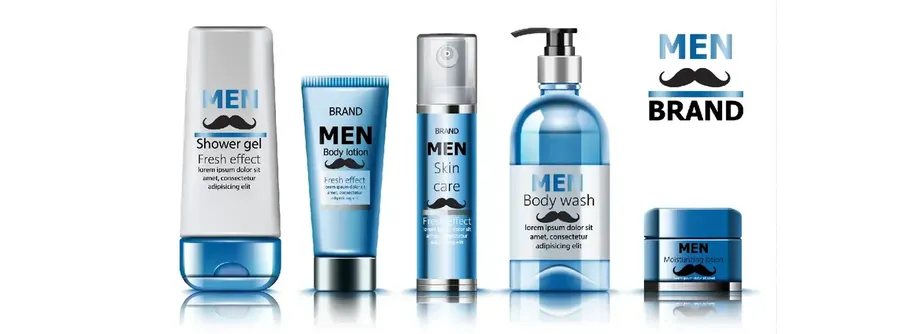Spotlight on Beauty Products for men in the United States
In 2016 the global men's beauty category recorded sales of $48 billion. Projections indicate that by 2022, this figure will reach $166 billion, with an annual growth rate of +6.4%
In the United States, the men's beauty products market is experiencing significant growth. This expansion reflects a shift from traditional grooming products to specialized lines, including creams and shampoos explicitly tailored for men.
The Role of Social Media in Men's Beauty
Social media platforms have played a pivotal role in this transformation, breaking down stereotypes and encouraging men to invest in personal care. Thanks to the Internet, male consumers can better understand their needs and preferences, leading them to seek out suitable products.
This marks the end of the era of 3-in-1 products, such as combined shampoo, conditioner, and body wash, in favor of personalized solutions.
Opportunities for Brands in the U.S. Market
Brands can tap into this growing demand by offering convenient solutions that address health and wellness concerns, such as hair loss. Startups that provide specialized products are gaining traction among consumers. To succeed, beauty brands must go beyond basic hydration and target specific niches with tailored offerings.
An example of this approach is the direct-to-consumer brand Bevel, launched in 2013 with shaving products designed for men of color. Led by entrepreneur Tristan Walker, Bevel has since expanded its range of personal care products and was acquired by Procter & Gamble in 2018. With a new round of funding, Bevel plans to expand its distribution in the U.S. tenfold over the next year.
Sustainability in Men's Beauty Products
Increasingly, brands are offering men's products with a focus on environmental sustainability. Utilizing reusable packaging for products in the U.S. is becoming a lifestyle choice embraced by male consumers. Currently, there are more eco-friendly products available for women than for men, indicating an opportunity for growth in this area.
Brands can tap into this growing demand by offering convenient solutions that address health and wellness concerns, such as hair loss. Startups that provide specialized products are gaining traction among consumers. To succeed, beauty brands must go beyond basic hydration and target specific niches with tailored offerings.
An example of this approach is the direct-to-consumer brand Bevel, launched in 2013 with shaving products designed for men of color. Led by entrepreneur Tristan Walker, Bevel has since expanded its range of personal care products and was acquired by Procter & Gamble in 2018. With new funding, Bevel plans to expand its distribution in the U.S. tenfold over the next year.
Sustainability in Men's Beauty Products
Increasingly, brands are offering men's products with a focus on environmental sustainability. Utilizing reusable packaging for products in the U.S. is becoming a lifestyle choice embraced by male consumers. Currently, there are more eco-friendly products available for women than for men, indicating an opportunity for growth in this area.

 (+1) 718-5225575
(+1) 718-5225575

